Overview
Bring a Holistic Digital Marketing Strategy to Your Brand or Business
Being a successful digital marketer isn’t just about knowing how to buy ads and create emails—it requires being able to integrate all the online marketing channels, interpret analytics, and develop strategies that respond to the changing needs of the market.
UVM’s award-winning online digital marketing program enables you to establish a strong digital presence for your organization and contribute to data-driven decision-making.
Why Choose Digital Marketing at UVM?
Stay Ahead of Trends & Tech
You’ll harness the power of data, emerging social channels, and more.
One-Stop-Shop Expertise
You’ll develop an integrated marketing plan and a solid understanding of every facet of digital marketing.
Learn from Industry Leaders
Course modules are taught by seasoned practitioners working successfully in the digital space.
Practice and Get Paid
Included are opportunities for practical experience, so you can develop self-confidence to hit the ground running in a new position.

Update Your Resume with a Recognized Leader
Instead of piecemealing your skills with a handful of badges or digital marketing courses from various companies, you can gain comprehensive knowledge, credibility, and expertise in one place at UVM.
Best Marketing Degrees ranks UVM’s Digital Marketing Fundamentals:
- #1 in overall best online marketing certificates
- #2 in most affordable digital marketing certificates
What You Will Learn
The Digital Marketing Fundamentals Professional Certificate gives you a firm grounding in theory and an invaluable opportunity to practice. Whether you’re an existing marketing professional looking to brush up on your skills or you’re completely new to the industry with no background in digital marketing, the program will position you as an expert.
Each week of the digital marketing program explores an online marketing channel:
- SEO (Search Engine Optimization)
- Analytics (including Google Analytics)
- Paid Search (including Google Adwords)
- Email Marketing (including SMS strategies)
- Social Media Marketing (including TikTok & YouTube strategies)
- Display Advertising
- Mobile Marketing
- Capstone Project
New Career-Boosting Micro-Modules
Once you complete the certificate, you can delve deeper into trending topics with bonus modules that will cover topics including how to effectively leverage attribution analysis to optimize marketing channels, develop and execute effective influencer marketing campaigns, and various AI tools that can support marketing functions. Bonus modules include:
- Advanced Digital Marketing Analytics: Marketing Attribution
- A.I. Marketing
- Influencer Marketing
- TikTok Marketing
- YouTube Marketing
- Creating a Marketable You
Key Program Takeaways
When you complete UVM’s digital marketing program you can expect to:
- Master common strategies and best practices for the core and emerging digital marketing channels.
- Align digital marketing goals with business objectives and use analytics to inform planning.
- Understand how analytics, validation, and research impact decision-making.
- Develop a dynamic digital marketing plan with an understanding of how the core digital marketing channels connect, intersect, and impact each other.
- Create and use digital marketing strategies specific to your needs.
Get Job-Ready
In addition to the Capstone Project, you can further your practical experience through a micro-internship. The PACE Micro-Internship Program will connect you with local and national business leaders who offer coveted, paid projects to build key skills and experiences that will help in your career path. Click here to learn more about this opportunity.
Who Should Take this Certificate?
Career Starters/Changers
Digital marketing skills are in high demand among employers. If you’re looking to break into the world of digital marketing, our program will give you the knowledge and experience you need to attract employers and begin your career as a digital marketing expert.
Marketing Professionals
In our device-driven economy, online marketing is one of the most important ways to connect with customers. Updating your skills can help you develop your expertise and reach your targets.
Business Owners/Nonprofits
Getting the message out about your product or service isn’t easy. The program will teach you how to effectively use online marketing channels to reach your community and customers by maximizing the impact of your marketing efforts.
I chose this class because it was hands-on and encouraged collaboration and feedback from the get-go…[It was] one of the greatest professional development investments I’ve participated in.
Alice Christman, The Chesapeake Bay Foundation
With a Bachelor’s, an MBA, and over 20 years of work experience in marketing, some might think there isn’t much this person needs to learn, but that is not the case. A significant portion of current job descriptions list digital skills as a requirement, and I felt ill-prepared to compete. UVM’s Professional Certificate in Digital Marketing Fundamentals course allows me to feel more comfortable and present myself with confidence in discussions with prospective clients and employers.
Marc Savitt, Sales and Marketing Consultant, Self-Employed
For one with no prior experience, the UVM Fundamentals of Digital Marketing course provided not only a foundation for further study, but key learnings that were immediately applicable to developing and implementing an effective digital marketing campaign for our eCommerce small business.
Phil Hayes, Chief Executive Manager Wilderness Lite LLC
I have been involved in direct-to-consumer marketing for many years but found that my skills had not kept pace with the industry and I needed to retool. This course was incredibly helpful in understanding the broad landscape of digital marketing…I wish I’d taken this years ago and have recommended it to my former brand managers.. I wish it had been part of my MBA!
Pamela Kerr, Director of Merchandising, Marketing, Ops
I found the course on bestmarketingdegrees.org. They rated UVM #1 for Digital Marketing Certification due to price and content. Having now taken the course I wholeheartedly agree!!
John Larrier, Account Manager, Big Voice Media and Productions
I took this course to build a concrete foundation for my current digital marketing career. I have confidence in my work because of this course. I will be applying the knowledge I gained from this course while building project proposals and making optimizations to current campaigns.
Julie Rodriquez, Central Garden and Pet
Curriculum
Module description: In this week, students will be on-boarded to the program’s planned curriculum, as well as a macro view of the current Interactive Marketing landscape. This session will provide valuable context around each module and corresponding channels. An emphasis will be placed on industry research, trends, compelling stats, and examples of each channel. Students will also be provided an overview of the program’s certification project along with necessary timelines.
Note: The first live session will be on Monday @ 8:00pm EST
Learning Objectives:
- Identify key trends within the Digital Marketing landscape
- Explain the holistic impact of all Digital Marketing channels
- Showcase an example of each Digital Marketing channel
- Evaluate expectations and timelines for the course project
Instructor: Bill Rowland
Note: The second live session will be on Wednesday @ 8:00pm EST
Module Description: During this week students will gain a solid understanding of the critical position Search Engine Optimization plays in any online presence. Emphasis will be placed on fundamental topics that transcend the constantly shifting nature of “search” to deliver actionable knowledge that every online marketer will be able to use. Specific examples of strategy and tactics will be presented and discussed.
Learning Objectives:
- Articulate SEO’s position as a fundamental building block for online marketing
- Grasp fundamental factors that result in achieving top search engine rankings
- Assess a website’s ability to rank well
- Develop the ability to create an Optimization Plan
- Live and Recorded Sessions
Instructor: Kim Jones
Module description: Paid Search marketing, often referred to as Search Engine Marketing (SEM) or Pay-per-click (PPC), is the process of driving site visitors or gaining visibility through paid advertisements on Google, Bing, Yahoo, and other search engines. Paid search marketing is a flexible and cost-effective vehicle to help businesses achieve their goals (sales, leads, traffic, enquires, etc.) The purpose of this course will be to provide an overview of the functions of search engine marketing, strategy, performance analysis, and real-life execution.
Learning Objectives
- Examine what paid search is, what it isn’t, and where ads appear
- Identify typical goals advertisers may have when running paid search campaigns
- Learn how paid search works within a typical auction-based bidding system
- Explain the basics of quality score and its role within paid search
Instructor: Krista Park
Module Description: Analytics plays a critical role in interactive marketing, and this course will provide an overview of the basic functions of analytics, and how analytics can be used to drive business decisions. This will encompass measurement strategy, goal setting, tracking, data analysis, and performance reporting. The course will also touch at a high level on how to pull actionable insights from data and make recommendations for site design and marketing initiatives.
Learning Objectives:
- Provide an overview of the various analytics data types: Specifically, the dimensions & metrics of the data Google Analytics provides
- Explain the basics of data analysis including assessing items like:
- User engagement and user value
- Interactions of a variety of marketing channels
- Detailed data e.g. device type, geographic locations, etc.
- Developing an analytics strategy: Setting & measuring KPIs based on the data
Instructor: Liz Willits
Module description: In this week, students will be exposed to the foundations of successful digital communications strategies including email and SMS. We’ll start with building an email list, to getting to the inbox, to Email ROI and complex strategies.
Learning Objectives
- Develop an email and sending strategy that adheres to email compliance best practices
- Utilize specific email formats to maximize email performance
- Create an accurate email data list to get emails into targeted inboxes
- Identify SMS strategies
Develop effective email and sending strategies
Compare and contrast when to use email or SMS marketing
Instructor: Tyler King
Module Description: In this week, students will learn the history of social technology, gain an understanding of social marketing strategy, and see examples of tactical execution. An emphasis will be placed on social and mobile, and understanding the impact of the transition from social marketing on the desktop to social marketing via mobile platforms.
Learning Objectives:
- Examine what social media is, what it isn’t and how it can be used for marketing
- Explain the difference between, and the convergence of, paid, owned, and earned media
- Describe the function of community management and explain its importance to a social media marketing strategy
- Analyze brand examples across social media platforms against best practices
- Analyze the role that social media marketing plays in the digital landscape and marketing mix
- Define the difference between goals, objectives, strategies, and tactics
- Map out social media marketing goals to tie back to overall business objectives
- Identify popular strategies and tactics currently being executed in the industry
- Explain the importance of measurement and analysis for continually evolving social media marketing strategies
Instructor: Aaron Levy
Module description: The free web as we know it is powered by display advertising. Newspapers and content providers simply wouldn’t be able to give their product away unless they knew they could monetize it. Today’s digital display ads are the modern version of yesterday’s billboards, television commercials, and bus wraps, all combined around sophisticated targeting options and pricing structures.
This portion of the course will provide a high-level overview of the different types of display ads that advertisers can create, and what the steps are required to make sure they’re in line with best practices. We’ll also touch on what pricing models exist, how they can be related to traditional media buys, and how you as a marketing professional, can get the best value for your ad dollars.
Learning Objectives:
- Utilize the different methods of targeting and buying display media. DSP’s vs. Programmatic vs. CPM vs. Direct buys.
- Develop success metrics for a notoriously difficult to track advertising medium and why click-throughs are not the best metric
- Evaluate the pricing models for display and target what works best for your budget
- Track and identify ways to optimize the performance of display campaigns
Instructor: Mollie Sheridan
Module Description: Over 25 percent of internet traffic in the US alone is driven by mobile and tablet users. Mobile is the next frontier for marketers. In this week students will learn the history of mobile, how the technology has grown at a rampant rate, and what it means for marketers and consumers today. The course will overview the latest technologies built into devices and in the cloud. This course will also look at design principles on mobile and how they affect a marketer’s ability to connect with a mobile customer. Lastly, the class will overview the impact of location-based services.
Learning Objectives:
- Examine the evolution of mobile and identify how it has shaped the consumer landscape today
- Explore how mobile technology and the mobile field is evolving faster than any other technology platform
- Highlight the basic mobile technologies, both in the hardware and in the cloud, and identify how they create opportunities for marketers to interact with mobile users
- Review the basic principles of design and how analytics, research, and validation are impacting decision making at every level
- Dive into mobile applications & marketing on the whole and opportunity areas based on current technology, demographic data, new technology in development, and possibilities on the horizon
Project Overview
Students will be expected to develop and present a digital marketing plan that includes and references learning gained from each session. The presentation of the plan will be recorded via screencast software and will be a maximum of 12 to 15 minutes long.
The content of their project will be comprised of three random variables (a brand, a marketing challenge, and a core initiative) that will determine the basis for their marketing objectives, strategies, goals, and tactics. The students will know their variables before the start of the Week Two module.
Students will also be able to select their existing company, or competitive company, as the focus brand for their projects. Students will be able to apply strategies and tactics learned through weekly assignments and the final project immediately to their day-to-day marketing campaigns.
Learning Objectives
Students will:
- Gain experience in developing an executable digital marketing plan.
- Gain experience with time management around meeting project deadlines.
- Develop their own presentation/speaking styles and learn effective methods of doing so through feedback on their presentation, as well as observation of other student presentations.
- Gain an understanding of the value a holistic digital marketing approach will deliver.
- Apply creative flexibility in the development of their final project content.
Students will have the ability to begin crafting their plan during weeks one through eight. They will then have week 8 to compile thoughts, conduct follow-up Q&A with instructors, develop the plan, complete the screencast, and post to Blackboard.
Bonus Modules
Equip yourself with knowledge on the key trends that will be impacting how brands think, and how marketers execute.
Instructor: Krista Park
Students will learn how to effectively leverage attribution analysis to optimize marketing channels, understand key terminology and tools for this purpose, and explore various use cases and examples. The module will enable students to make data-driven decisions for improved marketing performance. The hands-on exercise will help them apply these concepts to real-life situations.
Learning objectives:
- Understand the context and setup of attribution analysis and its importance in acquisition and conversion.
- Becoming more familiar with marketing analytics tools, key terms, and definitions such as ROAS, ROI, and channel grouping.
- Explore various attribution models, their pros and cons, and current best practices.
- Analyze the impact of different models on marketing channels through examples and case studies.
- Apply the concepts through an exercise using a sample dataset in Excel and interpret insights from different models.
Instructor: Erik Harbison
Students will learn about various AI tools that can support marketing functions, understand key concepts such as NLP and Machine Learning, and explore real-life use cases and examples. The module aims to help students harness the power of AI to optimize marketing operations and establish more efficient processes. Through hands-on exercises, students will gain experience in using AI tools to generate valuable content for various marketing tasks.
Learning objectives:
- Understand the types of AI tools that support marketing functions and their importance in enhancing the customer journey and operations.
- Becoming more familiar with common AI marketing tools and key terms such as NLP (Natural Language Processing) and ML (Machine Learning).
- Explore various use cases for AI in marketing, including copy creation, ad generation, and image processing.
- Learn the importance of crafting effective prompts and discover resources that provide specific prompts for marketing tasks.
- Apply AI tools, such as ChatGPT, Writesonic, or Rytr, to generate content for marketing tasks like emails, LinkedIn posts, and blog posts.
Instructor: Tyler King
Students will learn how to develop and execute effective influencer marketing campaigns, while understanding the legal, ethical, and performance measurement aspects. The module will provide an in-depth understanding of influencer marketing strategies, platforms, and case studies. The applied learning exercise will allow students to apply these concepts in a real-world scenario around developing an influencer marketing campaign strategy.
Learning objectives:
- Grasp the importance of influencer marketing and its historical context.
- Develop an influencer marketing strategy, including target audience identification, influencer selection, and setting campaign goals and metrics.
- Understand and compare popular influencer marketing platforms, key features, pricing, pros and cons.
- Learn about legal and ethical issues in influencer marketing, including disclosure requirements, intellectual property, and FTC regulations.
- Measure campaign effectiveness through relevant metrics, tools, and best practices for evaluating ROI, supported by case study analysis.
Instructor: Erik Harbison
Learning objectives:
- Take inventory of all areas tied to providing the more marketable you
- Identify opportunities for further skill building
- Discover the brand pillars that make up your personal brand
Career Acceleration for Marketing Professionals
Harbison has been building teams, strategies, and solutions for 25 years in the advertising and digital marketing industries. He’s worked with leading brands in the retail, consumer packaged goods, finance, travel, and technology sectors. He now focuses on supporting marketing professionals at all levels as an instructor at UVM, career coach and mentor through his company TheMarketingHelp.co.
Get Job Ready
One thing that sets UVM’s digital marketing certificate apart is the emphasis on real-world practice. Through the Capstone Project and the PACE Micro-Internship Program, you will gain invaluable practical experience, develop your self-confidence, and boost your resume.
Capstone Project
A successful digital marketing expert integrates all the online marketing channels into a cohesive marketing strategy that drives results. In the final week of the program, you will do just that through your Capstone Project.
You can use the capstone project, which is a multi-channel campaign, for your own purpose. Whether you choose a brand that you currently work for, or whether you’re hoping to interview for a position, and you have some ideas you want to share with the hiring manager of that brand.
Christopher Hill, Instructor, UVM Digital Marketing Fundamentals
The capstone project we did at the end was very helpful for me because I was able to put what I was learning from the class and what I was doing in my professional life together, and put this plan together and show it to my manager.
Anilka Lopez, Global Product Manager, Reebok
PACE Micro-Internship Program
UVM’s Digital Marketing Fundamentals program offers you a unique opportunity to put into practice what you have learned through a paid micro-internship. This will allow you to gain valuable professional experience and build meaningful connections with organizations across local and national industries, all while getting paid.
Student Stories
“The diversity of background & experience of all my instructors provided far more insights than I anticipated. I can now plan with fresh confidence and deeper insights our digital/online business. I highly recommend the class.”
Bill Dunwoodie, National Account Director Trimaco
“I appreciated that there was a different instructor for each facet of this program who could truly bring the expertise to the students.”
Francie Billings, Communications Specialist, Douglas County School District
“I came to learn, not just to put a certification title on my resume. I learned so much and the teachers were great. Taking a class that was affordable was very important to me and I think this class was a great value.”
Margaret Kiernan, Senior Director of Creative Services, Drew University
“As a UVM alum, this class was one of my favorite classes. It’s very important to understand the different channels that brands are using to connect with their customers, and better market their products and services.”
Tashia Phillips, Associate Brand Manager, Shoebuy
“All of the instructors came with impressive credentials as experienced professionals, and freely shared the tricks of the trade with the class. I learned more than I expected to, and highly recommend the course to others.”
Michelle St. Onge, Marketing & Communication Specialist, SUNY Plattsburgh – Global Education Office
Instructors
-
 More Info
More InfoChristopher Hill
Senior Account Executive at PureRED
-
 More Info
More InfoErik Harbison
CMO at Weber.com
-
 More Info
More InfoKim Jones
Data Strategy Lead at Seer Interactive
-
 More Info
More InfoTyler King
Senior Social Media & Community Manager at PandaDoc
-
 More Info
More InfoAaron Levy
Vice President of Paid Search at Tinuiti
-
 More Info
More InfoKrista Park
Customer Experience Analytics Manager at Mobiquity Inc.
-
 More Info
More InfoBill Rowland
Director for Search Engine Optimization (SEO) at Trinity Insight
-
 More Info
More InfoMollie Sheridan
Senior Manager of Paid Search at Tinuiti
-
 More Info
More InfoLiz Willits
Founder and Owner at Content Phenom
“To be a successful digital marketing professional in today’s changing landscape requires more than a blog, Facebook page, banner ad or email address. Success is based on understanding how to connect with a customer’s needs and wants. This course is designed to educate students on the core and emerging channels of digital marketing. Students will gain a new understanding of the ‘how’ behind these channels and why these channels are critical for solving the marketing challenges of brands today.”
Erik Harbison, Lead Instructor, Digital Marketing Fundamentals Professional Certificate
Career Outlook

Grow your career with digital marketing
The digital marketing industry is growing faster than most professions. According to the most recent Bureau of Labor Statistics (BLS) report, “Overall employment of advertising, promotions, and marketing managers is projected to grow 10 percent from 2021 to 2031.”
Whether you want to learn how to become a social media marketing expert or grow your career as an email marketer, our program will ensure you’re qualified.
Here are the types of jobs our graduates are qualified for:
- Programmatic Ad Buyer
- SEO Specialist
- Marketing Specialist
- Content Marketer
- Data Analyst
- Social Media Marketer
- Email Marketer
- Community Manager
- Paid Search Specialist
The Department of Labor’s ONET Online reports that in 2021, market research analysts and marketing specialists could expect to earn a median salary of $63,920.
Businesses rely on our students’ skills to succeed
Here are some of the places our students work, or have worked. Their skills in marketing are helping small businesses, national brands, and nonprofits to grow.
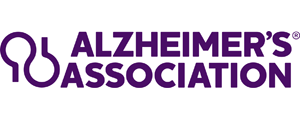



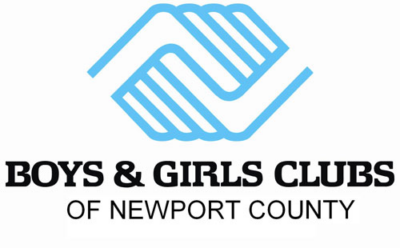




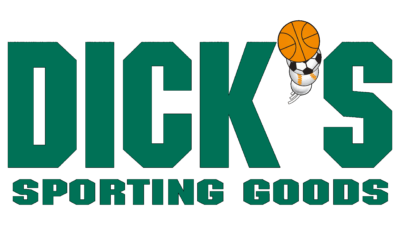
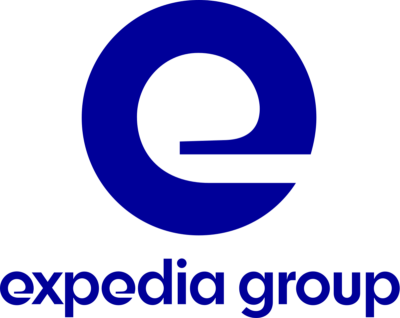



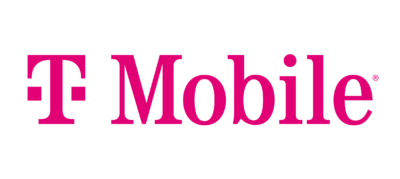

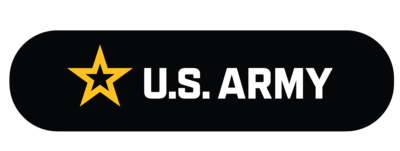


“I was able to immediately apply what I was learning to my job. I started working on SEO the first week! I also was able to analyze data I was receiving and apply it to our email campaigns and website. I really learned a lot, and I am inspired to continue learning about digital marketing.”
Rachel Cloutier, Peregrine Design/Build
FAQ
On average, you should anticipate 8 to 10 hours per week.
Yes. However, the instructor-led weekly live sessions are Wednesdays 8-9pm EST. While participation in these sessions is not required, it does offer unique access to highly interactive Q&A sessions. All sessions will be recorded and posted afterwards in the online classroom for students to view at any time during the course.
Anyone may enroll in the program. The tuition rate is set at $1695 for all students and does not differ based on a student’s residency. We offer a 20% discount for members of PMI-CV, VBSR, eCommerce Professionals Association, LCRCC or UVM, and UVM Medical Center Affiliates.
Learn about options for discounts, grants, loans, scholarships, and more on our tuition and financial aid page.
Course assignments vary: project based, reviewing of peer work, discussions, reading material, short videos, quizzes, personal reflection, and case studies.
The course is set up in sections of up to 25 students. You will be interacting with these students in the online course space via discussion boards and assignment feedback.
The very first class will meet live online via Teams on Wednesday night for the intro and overview at 8PM EST for an hour. All other live sessions will meet online via Teams on Wednesday nights at 8PM EST for about an hour. Attendance is not required, but this is the best chance for you to interact with our instructors and ask questions. The sessions will be recorded for you to watch or review at any time during the course.
Attendees in a recent course is illustrative of who typically participates:
Eight (8) are from Vermont and 18 from New England (including VT). The remaining participants, approximately 40, are from across the U.S. with some outside of the country (Jamaica and Hong Kong, for example).
Employers/roles
Many are in marketing roles, but also:
- School and colleges
- Large metropolitan newspaper
- Small companies
- Self-employed
- Writer
- Philanthropy
- Unemployed
- Nonprofit organization
- Website administrators
- Sales/account managers
- College professor
- College student
- Health care field
While a broad spectrum of individuals from various backgrounds benefit from our course, Digital Marketing Fundamentals is intended as a survey course covering Display Advertising, Search Engine Optimization, Mobile Marketing, Email Marketing, Paid Search, Analytics and Social Marketing. If you are seeking in-depth study in any one of these channels, contact us about upcoming short-courses that will offer a deep dive into each one of these areas. For many individuals, a continuum from introduction to intermediate and advanced study will be required to advance in a digital marketing career.
A number of graduates have reported our course helped them implement work-place projects, gain confidence in their work with colleagues on digital marketing projects, obtain job promotions, and gain first-time employment in the field. Depending on one’s career objective, further study in the field of digital marketing may be necessary to remain current in a fast-changing marketing field. UVM offers a range of intermediate-level digital marketing short-courses to assist in a continuum of study.
Yes, all course materials are included in the price and will be accessed through our online platform.
Absolutely! To access the webinar, click here.
If you are a non-credit student seeking accessibility support, please email access@uvm.edu and the UVM Student Accessibility Services team will be able to assist. In your email, please include that you do not have a 95 number/NetID.
- Have questions about taking an online or distance education course? Visit the Online and Distance Education FAQ page
- Have more basic questions about Professional and Distance Education? Visit our About Us and FAQs pages.
Students may register by paying the full $1,695 program fee online via credit card or by calling us at 802-656-8407 to make a partial payment of $500. Should you make a partial payment, the remaining $1,195 must be paid in full no later than two weeks prior to the start of this offering. If payment is not received by then, you will automatically be dropped from the course the following business day. Refunds will be issued less a $25.00 cancellation fee.
If you need to cancel your attendance, you must notify us via email at learn@uvm.edu or call us at (802) 656-2085 at least three business days prior to the start date of the course to receive a full refund, less a $25 cancellation fee. If a medical condition necessitates cancellation/withdrawal (documentation to be provided), this will be reviewed by our Studies Committee for any type of refund.
Veterans Benefits
The University of Vermont is able to certify VA benefits for the Digital Fundamentals Professional Certificate. If you intend to use VA benefits for this program, please register and contact UVM’s Veterans Affairs Coordinator, David Carlson, via email at dcarlson@uvm.edu (preferred) or by phone at (802) 656-0581, and Program Specialist, Annie Bentley at Annie.Bentley@uvm.edu, to inform the university of these intentions. To register without a deposit (if using Post 9/11 GI Bill or VRE Chapter 31) please call our Non-credit Office at (802) 656-8407.
The Digital Marketing Fundamentals Professional Certificate has been approved for 6 CEUs. You must successfully complete the program in order to receive the CEUs. CEUs will be printed on the certificate of completion.
You will receive a Digital Badge based on the following weighted completion of the course. You will also have the option to download and print a certificate.
- 60% capstone
- 20 % discussions
- 20% quizzes
Because this is a non-credit program there is no transcript.
1098-T forms are not issued for this program. However, you may be eligible for a tax credit without this form if you meet IRS requirements. For more information, please see this link https://www.irs.gov/individuals/llc or consult with a tax professional.
Resources to Help You Grow Your Career in Digital Marketing
Check out tips on how to succeed in the certificate program and beyond.
How to Learn and Apply Digital Marketing Strategies in Just 8 Weeks

#FacultyFeature: Digital Marketing Instructor Aaron Levy Talks About Digital Search Ads
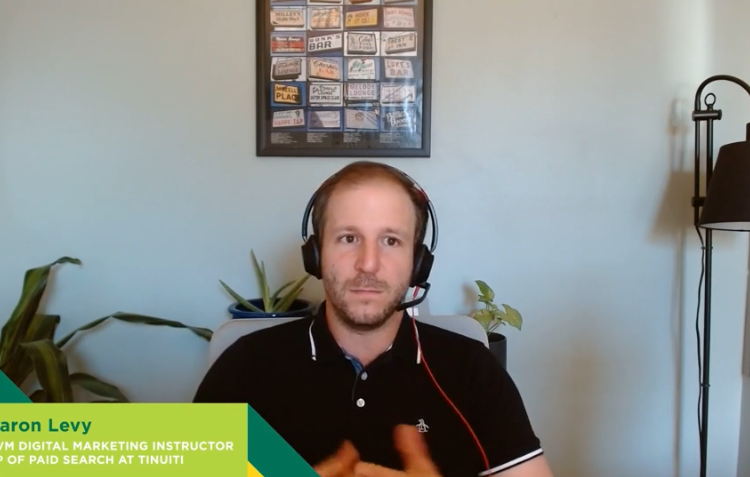
How to Plan a Successful Digital Marketing Capstone Project

Digital Marketing Fundamentals Syllabus

UVM Webinar: Digital Marketing Real Talk in Real Time
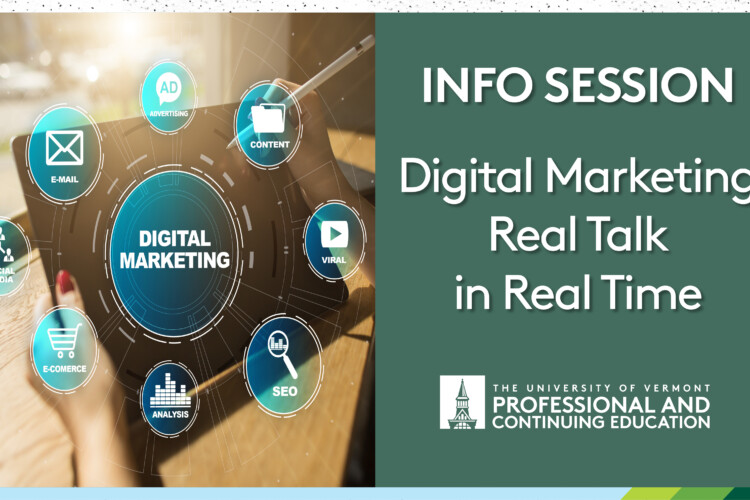
Deep Dive into Digital Marketing Careers & Opportunities
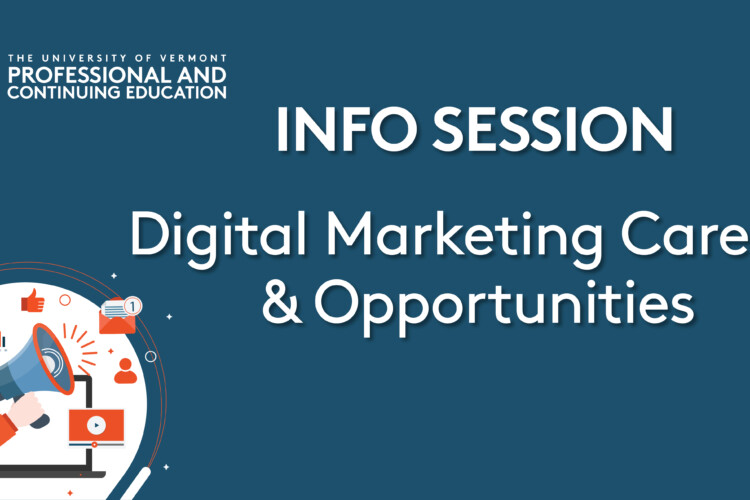
Advising and Student Support
You have the goal; we’ll help you achieve it
We are dedicated to helping you access UVM. It is our role to get to know your experience and goals, assist you in choosing courses, guide you through registration, and serve as your resource throughout your time at UVM.
Curious if your past college credits apply at UVM? Want to understand where a program will take you after completion? Looking for resources for financial aid, tutors, or UVM policies? We’re here to help.





